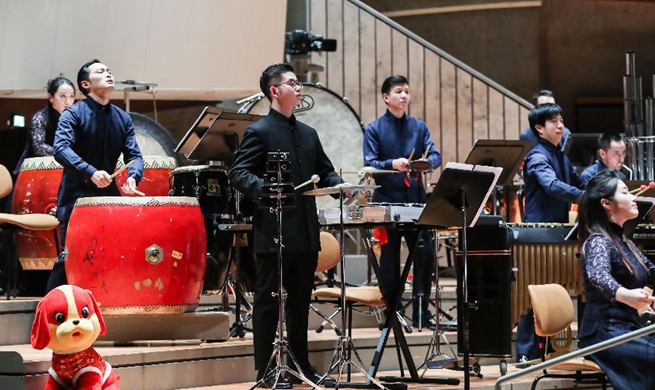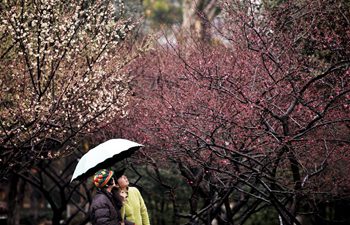NANCHANG, Feb. 20 (Xinhua) -- Jiang Chongyang, 79, thinks the Chinese Lunar New Year holiday is the worst time of the year.
Jiang has spent nearly 60 years living in an isolated leprosy prevention and treatment center in east China's Jiangxi Province.
At the age of 16, Jiang was diagnosed with Hansen's disease, as leprosy is more formally know. He was sent to the center by his family four years later.
"When you passed through the door, you know that you are never going to come back out," said Jiang.
"I still remember the last big dinner I had with my family on New Year's Eve 60 years ago," Jiang said.
About a month ago, Jiang's wife, 89, passed away. She was taken to the center by her ex-husband in the 1960s.
"No one ever came to visit her," Jiang said. "Leprosy was more frightening than cancer at that time."
"The neighbors, even your family, would keep their distance once you had the disease. Your family was forced to send you away," he said.
Jiang and his wife lived together most of their lives at the center, but never married. According to China's marriage law at the time, people with leprosy were not allowed to marry. It was not until 1980 that the law was amended.
At the center, a marriage certificate was of no importance, but companionship was, said Jiang.
Like Jiang, 82-year-old Huang Tianxiang and his "wife" were never formally married. Huang was sent to the "leprosy village" as it was called by outsiders, when he was 23.
Huang was born in Ganzhou in Jiangxi. Both his father and older brother are traditional Chinese medicine practitioners. Huang said he would have gone to college and become a TCM doctor like his father if he had not been diagnosed with the disease at 16.
"I still do not know how I caught the disease," said Huang.
Huang tried various medicines without telling his family. His skin began to fester, which even scared his sister, a nurse, who would not even give him an injection.
Jiang and Huang are among the 500,000 leprosy patients reported in China since the founding of the People's Republic of China in 1949.
According to the China Leprosy Association, nearly 480,000 people have been given free treatment and cured over the past half century, and now only 6,000 people suffer from the disease in the whole country.
In 2011, Chinese authorities announced plans to eradicate the disease in the country by 2020.
The center, founded in the late 1950s, is the largest prevention and treatment facility in Jiangxi, housing more than 500 people at a time. Now only 74 people, aged 70 on average, live there.
"The incidence of leprosy in Jiangxi has shrunk in recent years. Only 10 to 20 new cases are reported each year," said Xu Genbao, head of the center.
"As the disease eradicated, we hope people's fears and discrimination will also disappear soon," said Xu.
"When I was cured and went back home, I found my family quite indifferent to me. They thought they would catch the disease if I lived together with them," Huang said. "So I came back to the treatment center again."
"A dozen years ago, a bus driver asked me to get off the bus even though I told him I was cured and not contagious," Huang recalled. "Until now, no taxies are willing to drive patients at the center."
The discrimination stem from a lack of knowledge of leprosy, said Xu.
The vast majority of people know leprosy only from books, films and television, which are often full of frightening descriptions, according to Xu.
"Leprosy is the same as many common bacterial infections," Xu emphasized. "Leprosy can kill nerves, ulcerate skin and dissolve bones, but, with the advent of antibiotics, it now can be controlled and cured."
"Many volunteers come to help take care of us," Huang said. "I plan to write a book to help people know about more leprosy."
During this Spring Festival, Xu said 20 people had been taken home by their families to celebrate the most important holiday of the year.
"I hope the suffering will come to an end, with the eradication of the disease," said Xu.

















